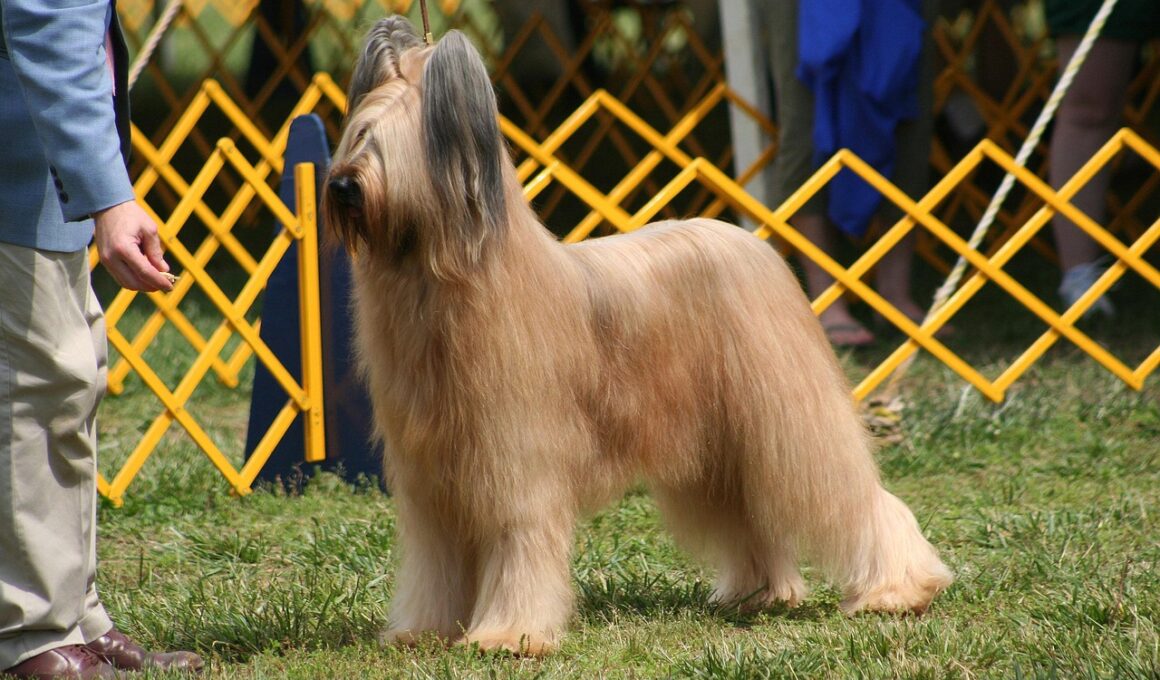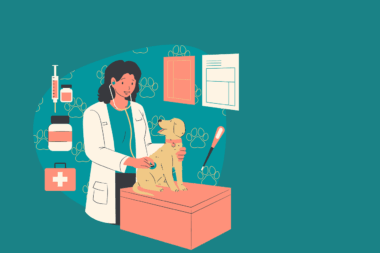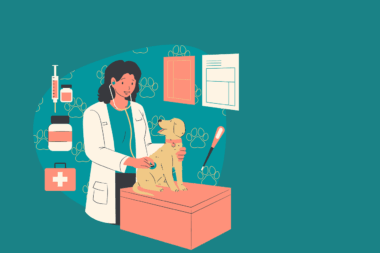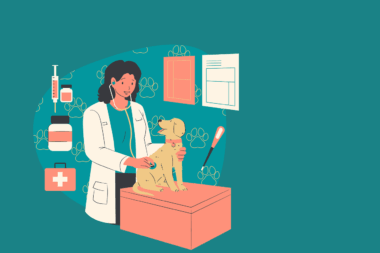Nutrition Tips to Keep Show Dogs in Top Health
Keeping show dogs in top health is essential for their performance and vitality. A well-balanced diet plays a crucial role in achieving this goal. First, high-quality protein is vital. Look for ingredients like chicken, beef, or fish as the primary sources. The protein content supports muscle development and helps maintain a healthy coat. Additionally, Omega fatty acids contribute to skin and coat health. Ingredients such as fish oil can be beneficial in this regard. Furthermore, ensure a good supply of vitamins and minerals. These nutrients assist in immune function and overall health. In selecting dog food, opt for those that meet AAFCO standards for balanced nutrition. Also, watch portion sizes and adjust according to your dog’s activity level to avoid weight gain. Regular feeding schedules are important for regulating digestion. Supplementing with vegetables may provide extra fiber and nutrients. Carrots or sweet potatoes can serve as nutritious treats. Lastly, always provide clean and fresh water. Monitoring your dog’s hydration is just as crucial as their food intake.
Understanding Nutritional Needs
Understanding the specific nutritional needs of show dogs is vital for their well-being. Depending on their breed, age, and activity level, the dietary requirements may vary significantly. Active show dogs require more calories to fuel their energy levels than less active companions. Consult your veterinarian to determine the ideal caloric intake for your show dog. Pay attention to their body condition score, which can help guide dietary adjustments. It’s essential not to compromise on food quality for the sake of budget. Invest in premium, nutritionally balanced dog food designed for specific life stages. These foods often combine protein sources, complex carbohydrates, and essential vitamins and minerals. Additionally, consider the timing of feeding. Many successful handlers implement a feeding schedule that aligns with show routines. Consistency in feeding times helps stabilize digestion and energy levels. Avoid sudden changes in diet, as this can lead to digestive issues. Gradually introduce any new foods to ensure your dog adapts well. Incorporate treats wisely, using them for training or rewarding good behavior, without compromising nutritional balance.
Regular vet check-ups play a huge role in maintaining your show dog’s health. Routine examinations allow early detection of any potential health issues that may emerge. Your veterinarian can also provide personalized nutrition advice tailored to your dog’s individual needs. For instance, a high-energy dog might benefit from a high-calorie diet. On the other hand, older dogs could need a diet lower in calories but rich in nutrients to maintain health. Additionally, puppy show dogs have unique nutritional requirements as they grow rapidly. They need higher levels of protein and fat compared to adult dogs. Bodyweight management is fundamental too, as overweight dogs may suffer from reduced agility and overall performance during shows. To optimize physical condition, consider including supplements in their diet. Probiotics can support digestive health, while glucosamine aids in joint health. Always consult your vet before introducing any supplements, as they can help guide on the right products and dosages. Moreover, remember to tailor training and exercise routines in conjunction with your nutrition plan. Balanced nutrition and exercise form the cornerstone of your show dog’s health.
The Importance of Hydration
Hydration is a vital component of your show dog’s dietary routine. Proper hydration supports overall health and performance during events. Always ensure your dog has access to fresh, clean water at all times. Dehydrated dogs may experience fatigue, lethargy, or even health emergencies. Show dogs are typically more active, requiring additional water intake, especially during hot weather or after exercise. Monitor their water consumption, and offer water before and after training sessions. If traveling for shows, consider carrying portable water bowls and ensuring they drink regularly. In some cases, adding water to dry kibble can entice your show dog to consume more fluids. You can also offer low-sodium broth or ice cubes made from broth as enjoyable hydration alternatives. High-moisture food formulations, like canned food, can help meet their hydration needs. By ensuring proper hydration, you can improve your dog’s stamina and recovery post-exercise. Avoid giving treats that might dehydrate your dog, such as salty snacks. Always consult with your vet regarding adequate hydration strategies tailored to your dog’s specific needs.
Another crucial aspect of keeping show dogs healthy revolves around grooming. Regular grooming not only keeps your dog’s coat pristine but also benefits skin health. Depending on the breed, grooming needs may vary widely. Long-haired breeds require more frequent brushing to prevent mats and tangles, while short-haired breeds might need less maintenance. Bathing should be carried out regularly, but over-bathing can strip natural oils from their skin. Select a high-quality shampoo to avoid skin irritation while ensuring cleanliness. Additionally, maintain their nails to prevent discomfort or injury during competitions. Long nails can interfere with a dog’s movement, impacting their performance. Regular dental care is just as important. Dental disease can lead to serious health issues. Utilizing dental chews or performing regular tooth brushing can help maintain good oral hygiene. Alongside grooming, socialization and mental stimulation are essential for show dogs. Providing them with opportunities to socialize with other dogs, as well as engaging interactive toys or training sessions, will keep your dog’s mind sharp. A well-groomed and mentally stimulated dog is far better equipped to perform well at events.
Monitoring Weight and Body Condition
Monitoring body weight and conditioning is key to your show dog’s health. Maintaining an optimal body condition is crucial for agility and performance during shows. Use the body condition score (BCS) system to assess their fitness level. Your dog should have a visible waistline and defined ribs without being underweight nor overweight. Regular weigh-ins can help you keep track of any changes in weight, which may require dietary adjustments. If your dog is losing weight unexpectedly, consult your veterinarian to rule out underlying health issues. Conversely, if they are gaining weight, adjust portion sizes and increase exercise levels. Implement a routine that focuses on achieving and maintaining a healthy weight. This routine should include a balanced diet, regular exercise, and activity tailored to your dog’s interests and abilities. Exercise routines might include structured walks, playful games, or even agility training. Avoid over-exerting your dog to prevent injuries, especially leading up to shows. Instead, focus on building strength and stamina over time. Balance between nutrition and activity is vital, ensuring your dog remains competitive.
Finally, always keep a close watch on allergies and sensitivities. Show dogs may experience food allergies that prompt skin problems or gastrointestinal issues. Thus, monitor them closely for any signs of reaction, such as itching, swelling, or digestive upset. Consult with your veterinarian to consider alternative diets suited for your dog’s needs. A protein source, such as limited-ingredient diets, may help. Additionally, ensure that any treats you offer are free from common allergens. Read ingredient labels carefully to avoid fillers or artificial additives that could trigger allergies. Every dog is different, and it’s vital to identify what works for your dog through trial and observation. Incorporate their diet changes gradually, enabling their digestive system to adapt. You also wish to avoid excessive weight gain linked to treats. Understanding the nutritional impact of every component of their diet empowers you to provide the best nutrition plan. Ultimately, maintaining your show dog’s health will enhance performance and longevity, letting them shine on grand competition stages. With balanced nutrition and attentive care, you’re setting a solid foundation for your dog’s future success.





